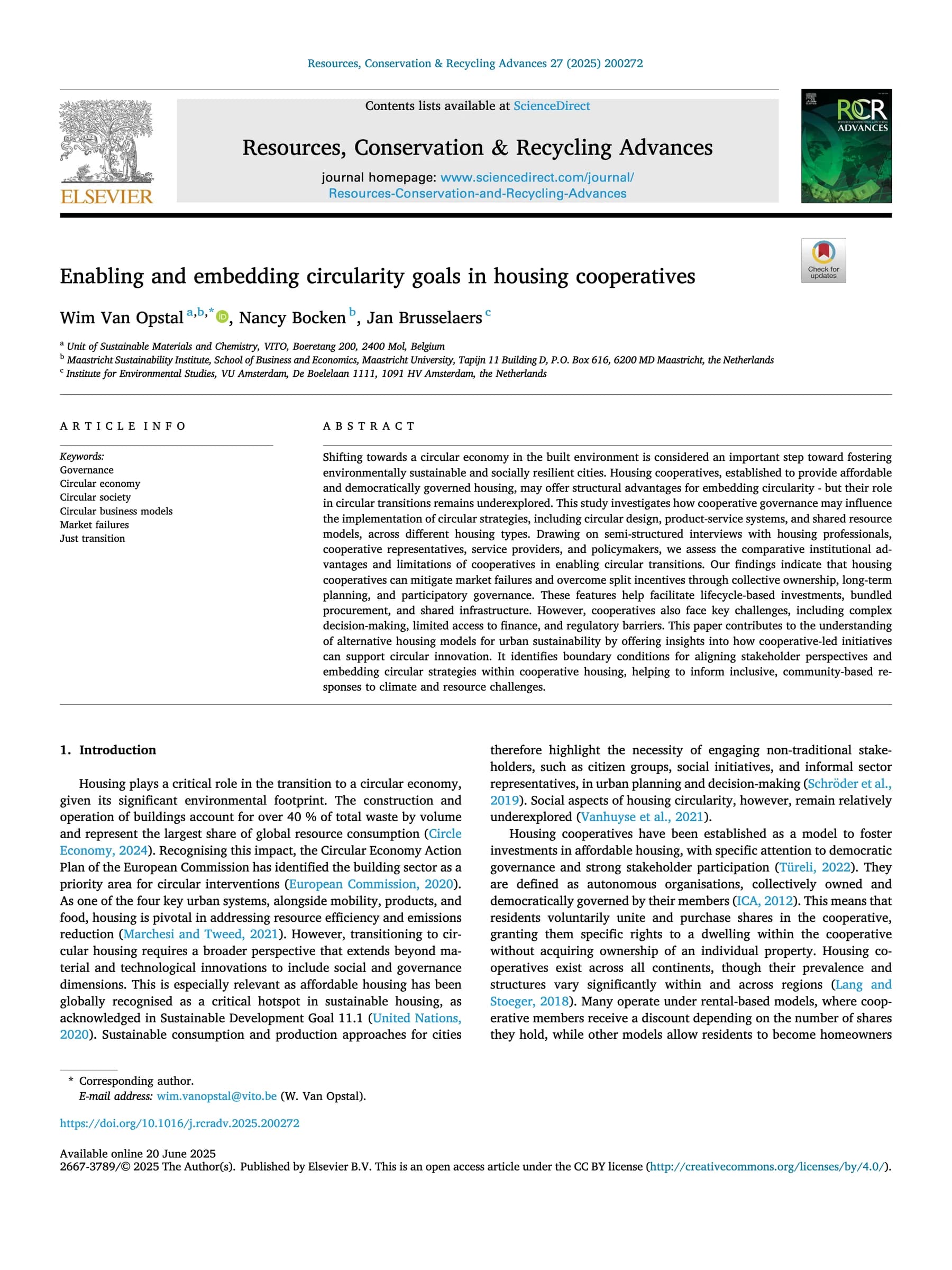AI-Generated Summary
Context and Purpose
The article "Enabling and embedding circularity goals in housing cooperatives" explores the significant role housing cooperatives play in advancing circular economy principles within the built environment. Authored by Wim Van Opstal, Nancy Bocken, and Jan Brusselaers, this research highlights how these cooperatives can foster sustainable and socially resilient urban living. The findings are based on interviews with various stakeholders, including housing professionals and policymakers, and aim to inform strategies for integrating circularity in housing.
Importance of Circular Economy in Housing
The transition to a circular economy in housing is crucial, given that the construction and operation of buildings account for over 40% of global waste and represent a significant portion of resource consumption. The European Commission has identified the building sector as a priority area for circular interventions, emphasizing the urgency to adopt sustainable practices in housing.
Governance and Cooperative Models
Housing cooperatives, defined as collectively owned and democratically governed organizations, offer unique advantages for embedding circularity. Their governance structures can mitigate market failures and facilitate lifecycle-based investments. However, challenges such as complex decision-making and limited access to finance may hinder their effectiveness in implementing circular strategies. The study investigates how cooperative governance influences the adoption of strategies like circular design and shared resource models.
Research Findings and Implications
The research findings indicate that housing cooperatives can promote sustainability through collective ownership, long-term planning, and participatory governance. The ability to pool resources and foster trust among members enhances their capacity to implement circular strategies. However, barriers such as regulatory constraints and the necessity for in-house expertise present challenges that need to be addressed.
Comparative Analysis of Housing Types
The paper examines the cooperative model across different housing types—single-family homes, apartments, and cohousing. It finds that cooperatives in apartment settings can better leverage economies of scale for circular investments, while cohousing models inherently align with circularity due to their emphasis on shared ownership and resources.
Stakeholder Perspectives
The study delves into various stakeholder perspectives on circular strategies in cooperative housing. It identifies the alignment of incentives between residents and the cooperative as a critical factor in overcoming barriers to sustainability. Financial institutions often perceive cooperatives as high-risk, complicating their access to capital for circular investments. Policymakers also have a significant role in facilitating this transition by reforming fiscal policies and offering support for cooperative models.
Conclusion and Future Research Directions
In conclusion, housing cooperatives have the potential to drive circular housing solutions, but they must navigate various challenges, including financial constraints and regulatory barriers. Future research should focus on incorporating resident perspectives and examining the actual impact of cooperative governance on circularity. This work contributes valuable insights into how cooperative-led initiatives can enhance urban sustainability and respond to climate and resource challenges.
